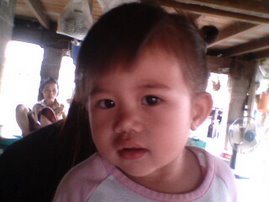
A more steady-state view of nature: Hopetoun Falls, Victoria, Australia. Much attention has been given to preserving the flora and other natural characteristics of the view, while allowing ample access for visitors to this popular site.

Galunggung in 1982, showing a combination of natural events.
Nature, in the broadest sense, is equivalent to the natural world, physical universe, material world or material universe. "Nature" refers to the phenomena of the physical world, and also to life in general. The term generally does not include manufactured objects and human interaction unless qualified in ways such as, e.g., "human nature" or "the whole of nature". Nature is also generally distinguished from the supernatural. It ranges in scale from the subatomic to the galactic.
The word "nature" is derived from the Latin word natura, or "the course of things, natural character."[1] Natura was a Latin translation of the Greek word physis (φύσις), which originally related to the intrinsic characteristics that plants, animals, and other features of the world develop of their own accord.[2] This is shown in the first written use of the word φύσις, in connection with a plant.[3] The concept of nature as a whole, the physical universe, is one of several expansions of the original notion; it began with certain core applications of the word φύσις by pre-Socratic philosophers, and has steadily gained currency ever since. This usage was confirmed during the advent of modern scientific method in the last several centuries.[4][5]
Within the various uses of the word today, "nature" may refer to the general realm of various types of living plants and animals, and in some cases to the processes associated with inanimate objects – the way that particular types of things exist and change of their own accord, such as the weather and geology of the Earth, and the matter and energy of which all these things are composed. It is often taken to mean the "natural environment" or wilderness – wild animals, rocks, forest, beaches, and in general those things that have not been substantially altered by human intervention, or which persist despite human intervention. This more traditional concept of natural things which can still be found today implies a distinction between the natural and the artificial, with the latter being understood as that which has been brought into being by a human or human-like consciousness or mind.
The word "nature" is derived from the Latin word natura, or "the course of things, natural character."[1] Natura was a Latin translation of the Greek word physis (φύσις), which originally related to the intrinsic characteristics that plants, animals, and other features of the world develop of their own accord.[2] This is shown in the first written use of the word φύσις, in connection with a plant.[3] The concept of nature as a whole, the physical universe, is one of several expansions of the original notion; it began with certain core applications of the word φύσις by pre-Socratic philosophers, and has steadily gained currency ever since. This usage was confirmed during the advent of modern scientific method in the last several centuries.[4][5]
Within the various uses of the word today, "nature" may refer to the general realm of various types of living plants and animals, and in some cases to the processes associated with inanimate objects – the way that particular types of things exist and change of their own accord, such as the weather and geology of the Earth, and the matter and energy of which all these things are composed. It is often taken to mean the "natural environment" or wilderness – wild animals, rocks, forest, beaches, and in general those things that have not been substantially altered by human intervention, or which persist despite human intervention. This more traditional concept of natural things which can still be found today implies a distinction between the natural and the artificial, with the latter being understood as that which has been brought into being by a human or human-like consciousness or mind.




ไม่มีความคิดเห็น:
แสดงความคิดเห็น